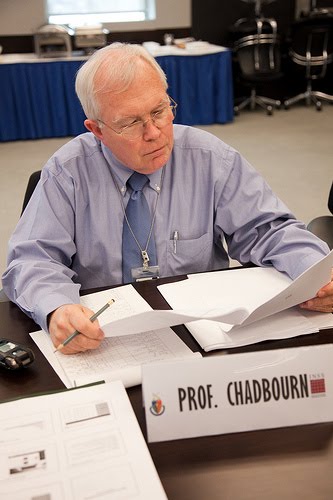
We live in a world of change driven by technology and a worldwide COVID-19 pandemic that medical scientists have not yet been able to curb. There is much talk of quarantines of all sorts. Perhaps that is a subtle reminder of the importance of a journal dedicated to encouraging academic scholarship in the field of international naval history. The very word “quarantine” derives from the Venetian language quarantena, meaning forty days. The term referred to the isolation imposed on ships arriving in Venice before passengers and crews were allowed to go ashore as a means of disease prevention for bubonic plague in the 14th-15th centuries. Ultimately the Black Death wiped out an estimated 30% of Europe’s population.
On 22 October 1962, during the Cuban Missile Crisis, the word took on a different meaning when President John Kennedy ordered and enforced a naval “quarantine” to prevent delivery of offensive weapons in the form of missiles the Russians were sending to Cuba. The intent was to distinguish his action from a blockade which legally would have assumed a state of war existed between between the two countries. As the United States Navy recently re-learned with spread of the novel coronavirus on the carrier USS THEODORE ROOSEVELT while on deployment in the Western Pacific, medical quarantines are not yet part of history’s dustbin.
Perhaps the hidden benefit of today’s pandemic is that technology of our Zoom era provides more effective tools for all of us to make more effective use of our quiet time for reading and reflection, not unlike an in port stand down before an upcoming deployment. As a digital publication, we at the International Journal of Naval History hope to be more active in the coming months as part of the digital exploration of naval history which is open to us during this era. As archives and documents become more readily available to scholars and writers worldwide, we have become increasingly aware of maritime and naval stories which deserve both telling and analysis. A crucial part of our mission is to serve as an outlet for writing such as this, bringing openness and fresh scholarship to readers in the world of naval history.
In this issue we are reaching another long-sought goal of focusing on a particular topic; in this case the USS PUEBLO Crisis of 1968. Here we take a somewhat unusual approach by offering two articles from independent scholar Bill Streifer. Mr. Streifer contends that “both contain startling revelations.” He says that according to Dr. Andrei Lankov, a Professor of History at Kookmin University in Seoul, a recognized authority on North Korea, the PUEBLO was “hidden” at some undisclosed location after the North Koreans seized the vessel in January of 1968. He discusses U.S. efforts to locate the ship, where it was “hidden” for decades, and how U.S. reconnaissance discovered it (not by spy plane).
The second article describes how, following the PUEBLO’s seizure, a member of the Senate Armed Services Committee interviewed the U.S. Secretary of Defense and the Chairman of the Joint Chiefs of Staff. He asked why, despite the “availability” of aircraft in Japan, Guam, South Korea, and on an aircraft carrier, USS ENTERRISE, senior admirals did not send any warplanes to protect the PUEBLO. In 1969, during the Navy’s Court of Inquiry, the Senator returned to review his questions and their answers. He was shocked to find that someone had cut out an answer with scissors. The clerk of the Congressional Record said he had not seen this in his 22-years’ experience. If it was classified, the clerk said it would have been marked “classified” with a giant “C” in red, not doctored/altered/destroyed. Historians do not make this stuff up!
Finally, we continue our longstanding practice of encouraging and recognizing scholarship by junior members of the profession. To this edition we have a fascinating documentary on the career of legendary CAPT Rosemary Mariner, USN, a pioneer woman Naval Aviator. The documentary was written and produced by Jessie Henderson, of Cleveland, Tennessee, much of it based on original work with primary sources, including interviews with family members.
Jessie received the Kenneth Coskey Prize in Naval History in the Senior Division of the 2020 National History Day competition at the University of Maryland in College Park for her work. The Naval Historical Foundation awards the prize. Her mentor, Dr. Julie Mitchell, was honored as a Naval Historical Foundation national “Teacher of Distinction” for 2020. The documentary also includes an extensive annotated bibliography useful for anyone studying the role of women in the U.S. Navy.
And so, colleagues, as usual, we have much to share. I welcome your comments, suggestions, ideas, and, most of all, potential articles for publication. There is much to learn from one another with such dialog.
Dr. Charles C. Chadbourn, III
Editor, International Journal of Naval History
Professor of Strategy, U.S. Naval War College
